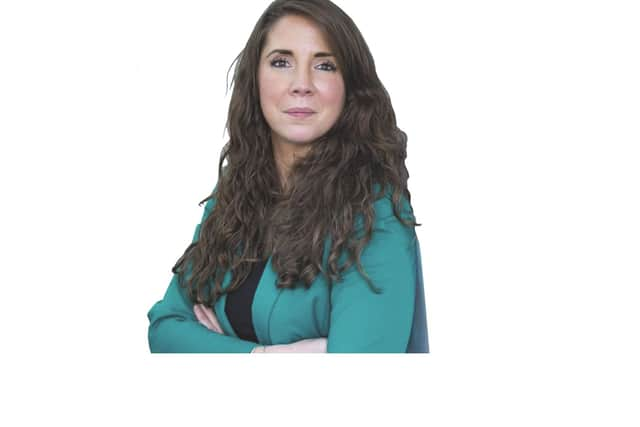How the Global Open Finance Centre of Excellence is using data to improve our lives


They give insights that cannot be gamed or gained from any other medium and are being used, in de-identified form, by the Global Open Financial Centre of Excellence (GOFCoE) to help make the lives of people living in Scotland and beyond better.
GOFCoE was established just over a year ago and has moved swiftly from start-up to scale-up mode. It was awarded £22.5 million in funding over five years from the UKRI’s Strength in Places fund last September and has grown from ten employees to a total of 60.
Advertisement
Hide AdAdvertisement
Hide AdBased at the Bayes Centre at the University of Edinburgh – and bound for the Edinburgh Futures Institute once that building is complete – GOFCoE is one of the hubs of the Data Driven Innovation initiative. It aims to become a financially sustainable not-for-profit organisation and will generate funds through commissioned research, innovation and talent creation.


GOFCoE will also play a key role in supporting the fintech ecosystem in Scotland through the creation of a “sandbox” that will allow companies to test their propositions in an environment which replicates the secure data architecture found in the financial services industry.
The centre is looking to build on its strong relationship with the University of Edinburgh to feed the fintech talent pipeline in Scotland and has plans to commercialise its training and learning propositions.
Richard Seabrook, interim head of marketing and communications at GOFCoE, says: “Our mission is to unlock the potential within financial data so that it can help improve lives. This is the wealth that GOFCoE brings in that, if it didn’t exist, the insights within this data would just be sitting there.”
Gathering a critical mass of financial data has been key to GOFCoE’s ability to derive insights from data and one million de-identified account records, provided by NatWest, has played a key role in GOFCoE’s projects so far.
The NatWest data is being used to provide an insight into how our finances have been affected by the pandemic and how they are recovering as we emerge from lockdowns and restrictions. The data is displayed in economic dashboards created for both the UK and Scottish governments and is helping to shape policy.
Seabrook says: “NatWest was the first UK bank to contribute data to GOFCoE and they have helped us prove that we can unlock value from data, and established and proved our governance model when it comes to working with financial data.
“We are dealing with consumer data and we need to ensure that we are responsible and respectful with how we work with that data, and that we are clear with how that data is being stored and used.”
Advertisement
Hide AdAdvertisement
Hide AdSeabrook also said that the work carried out during the NatWest project had created a reference point in how people manage their money, should the world be faced with another pandemic.
He said: “The work that we have done with NatWest builds up that historical data archive that gives us a record of how those customers were spending and earning before the pandemic and then during the pandemic and after. It creates a historical timeline in terms of financial behaviour that couldhelp prioritise investment infuture pandemics to where it is needed the most.”
GOFCoE is also working with Virgin Money and Fair By Design, a policy change programme run by the Barrow Cadbury Trust, to address the issue that people with less money can often have to pay more for goods and services. Sometimes referred to as “the poverty premium”, it is estimated it affected 14 million people in the UK before Covid and is expected to have increased since then.
This affects the poorest in society, with many paying more for goods and services through higher utility bills and interest rates. They are also often faced with increased insurance costs.
Mia Dowman, engagement lead for social impact at GOFCoE, who has played a lead role in the poverty premium project, says: “The effect of the poverty premium is at the moment measured by survey and self-reported data.
“What we are looking to do is create a representative measure which gives a granular view that shows who is facing the issue and by how much, so that appropriate policy and support interventions can be improved.
“The amount people affected by the poverty premium can range from £490 a year right up to £1,200 a year and beyond.”
GOFCoE is also working with a major investment house using de-identified financial data and focus groups to examine financial distress among financially vulnerable older workers, and determine how the income and expenditure patterns of people aged 55 and over were affected by Covid.
Advertisement
Hide AdAdvertisement
Hide AdA report into the study will be published next year and it is hoped that it will provide insights as to how people in retirement can be better supported, particularly as more people are now delaying retirement.
This article first appeared in the October 2021 edition of The Scotsman’s Fintech Focus supplement. A digital version can be viewed here.